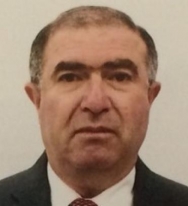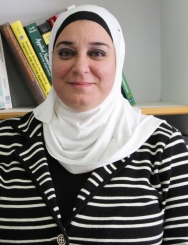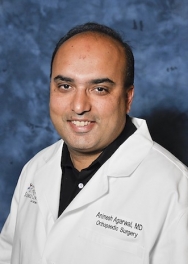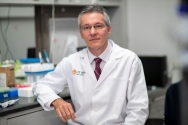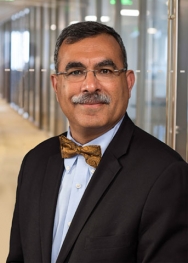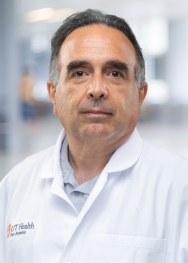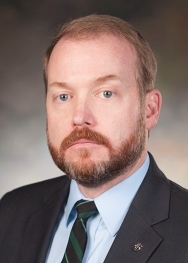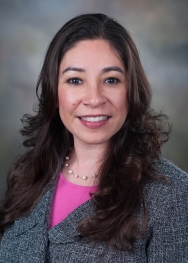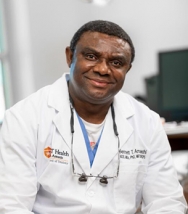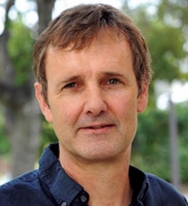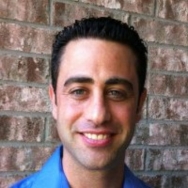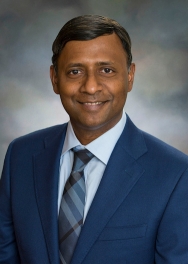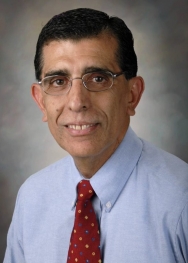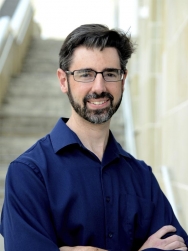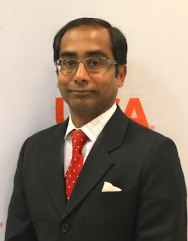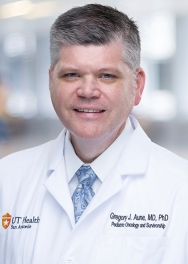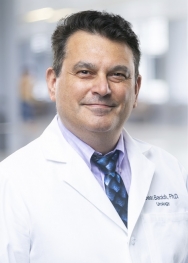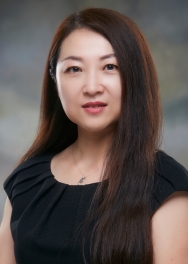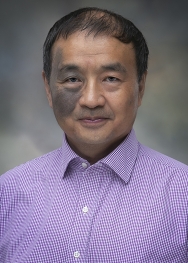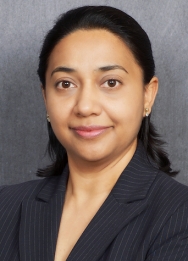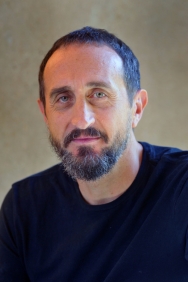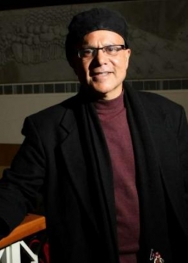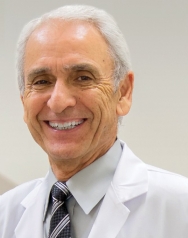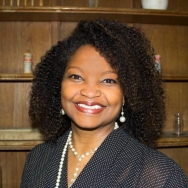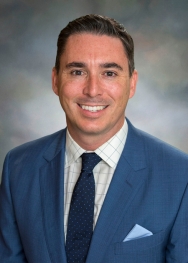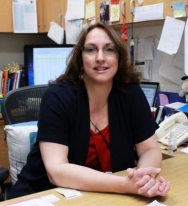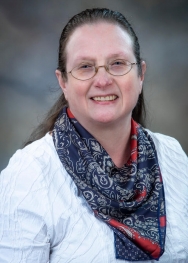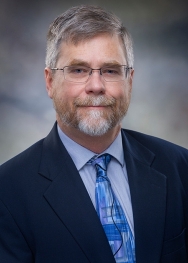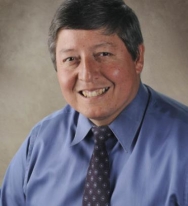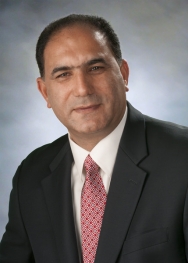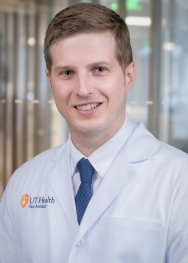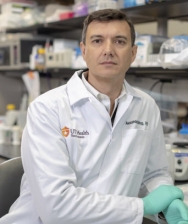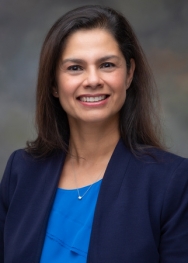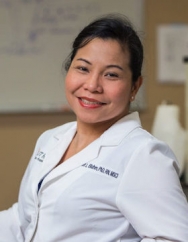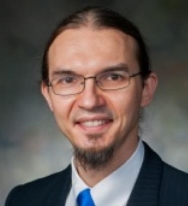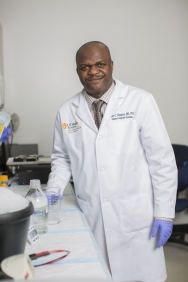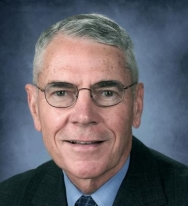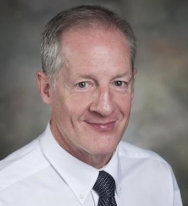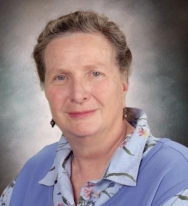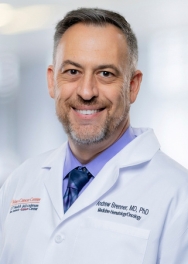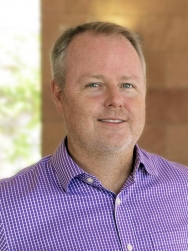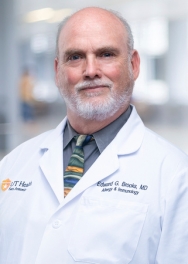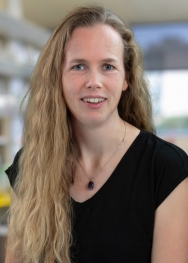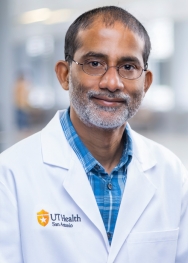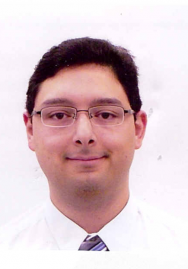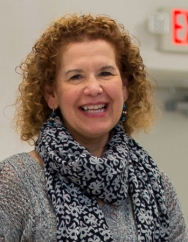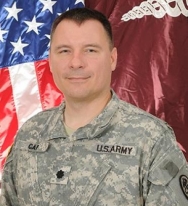Faculty Directory
Displaying 1 - 50 of 538
Muhammad Abdul-Ghani MD, PhD
Programs
- M.D./Ph.D. in South Texas Medical Scientist Training Program
- Ph.D. in Integrated Biomedical Sciences
- Physiology and Pharmacology
Departments & Divisions
- Department of Medicine
- Division of Diabetes
Animesh Agarwal M.D.
Programs
- M.S. in Biomedical Engineering
- Ph.D. in Biomedical Engineering
Departments & Divisions
- Department of Orthopaedics
Ricardo Aguiar M.D., Ph.D.
Programs
- M.D./Ph.D. in South Texas Medical Scientist Training Program
- Ph.D. in Integrated Biomedical Sciences
- Molecular Immunology & Microbiology
Departments & Divisions
- Department of Medicine
- Division of Hematology & Oncology
Sunil K Ahuja M.D.
Programs
- M.D./Ph.D. in South Texas Medical Scientist Training Program
- M.S. in Clinical Investigation & Translational Science
- M.S. in Immunology & Infection
- Ph.D. in Integrated Biomedical Sciences
- Molecular Immunology & Microbiology
Departments & Divisions
- Department of Medicine
- Division of Infectious Diseases
Armen N. Akopian Ph.D.
Programs
- M.D./Ph.D. in South Texas Medical Scientist Training Program
- Ph.D. in Integrated Biomedical Sciences
- Neuroscience
- Physiology and Pharmacology
Departments & Divisions
- Department of Endodontics
Paul B. Allen Sr., DSc, MPAS, PA-C, FAAPA
Programs
- M.P.A.S. (Master of Physician Assistant Studies)
Departments & Divisions
- Department of Physician Assistant Studies
Judy Ann Alvarado M.Ed., R.D.H.
Programs
- M.S. in Dental Hygiene
Departments & Divisions
- Department of Periodontics
Bennett Tochukwu Amaechi B.D.S., M.Sc., Ph.D., MFDS RCPS (Glasg), FADI
Programs
- M.S. in Clinical Investigation & Translational Science
- M.S. in Dental Science
Departments & Divisions
- Department of Comprehensive Dentistry
Tim Anderson Ph.D.
Programs
- M.D./Ph.D. in South Texas Medical Scientist Training Program
- Ph.D. in Integrated Biomedical Sciences
- Cell Biology, Genetics, and Molecular Medicine
- Molecular Immunology & Microbiology
Departments & Divisions
- Department of Microbiology, Immunology & Molecular Genetics
Ravikumar Anthony B.D.S., M.D.S., M.S.
Programs
- M.S. in Dental Science
Departments & Divisions
- Department of Developmental Dentistry
Antonio Anzueto M.D.
Programs
- M.D. in Doctor of Medicine
- M.S. in Clinical Investigation & Translational Science
- Ph.D. in Translational Science
Departments & Divisions
- Department of Medicine
- Division of Pulmonary Diseases & Critical Care Medicine
Bernard Arulanandam Ph.D.
Programs
- Ph.D. in Translational Science
- Ph.D. in Integrated Biomedical Sciences
- Molecular Immunology & Microbiology
Gregory J Aune MD, PhD
Programs
- M.D./Ph.D. in South Texas Medical Scientist Training Program
- Ph.D. in Integrated Biomedical Sciences
- Cancer Biology
- Physiology and Pharmacology
Departments & Divisions
- Department of Pediatrics
- Division of Pediatric Hematology-Oncology
Juli Bai Ph.D.
Programs
- M.S. in Cell Systems & Anatomy
- Ph.D. in Integrated Biomedical Sciences
- Biology of Aging
- Physiology and Pharmacology
Departments & Divisions
- Department of Cell Systems & Anatomy
- Department of Pharmacology
Yidong Bai Ph.D.
Programs
- M.D./Ph.D. in South Texas Medical Scientist Training Program
- M.S. in Biomedical Engineering
- M.S. in Cell Systems & Anatomy
- Ph.D. in Biomedical Engineering
- Ph.D. in Integrated Biomedical Sciences
- Cell Biology, Genetics, and Molecular Medicine
Departments & Divisions
- Department of Cell Systems & Anatomy
Swati Banerjee Ph.D.
Programs
- Ph.D. in Integrated Biomedical Sciences
- Physiology and Pharmacology
Departments & Divisions
- Department of Cellular & Integrative Physiology
Nasser Barghi D.D.S., M.A.
Programs
- Advanced Education in General Dentistry
- M.S. in Dental Science
Departments & Divisions
- Department of Comprehensive Dentistry
Blair Barnett DDS
Programs
- D.D.S. in Doctor of Dental Surgery
- M.S. in Dental Science
Departments & Divisions
- Department of Developmental Dentistry
Kelly A. Berg Ph.D.
Programs
- D.D.S./Ph.D. in Doctor of Dental Surgery & Doctor of Philosophy
- M.D./Ph.D. in South Texas Medical Scientist Training Program
- Ph.D. in Integrated Biomedical Sciences
- Neuroscience
- Physiology and Pharmacology
Departments & Divisions
- Department of Pharmacology
Andrea E. Berndt PhD, MS, BS
Programs
- Ph.D. in Health Sciences
- Ph.D. in Nursing Science
- Ph.D. in Translational Science
Michael T. Berton PhD
Programs
- M.D./Ph.D. in South Texas Medical Scientist Training Program
- M.S. in Immunology & Infection
- Ph.D. in Integrated Biomedical Sciences
- Molecular Immunology & Microbiology
Departments & Divisions
- Department of Microbiology, Immunology & Molecular Genetics
Manzoor A. Bhat M.S., Ph.D.
Programs
- M.D./Ph.D. in South Texas Medical Scientist Training Program
- Ph.D. in Integrated Biomedical Sciences
- Cell Biology, Genetics, and Molecular Medicine
- Neuroscience
- Physiology and Pharmacology
Departments & Divisions
- Department of Cellular & Integrative Physiology
Kevin F. Bieniek Ph.D.
Programs
- Ph.D. in Integrated Biomedical Sciences
- Biology of Aging
- Cell Biology, Genetics, and Molecular Medicine
- Neuroscience
Departments & Divisions
- Department of Pathology and Laboratory Medicine
Alexander J. R. Bishop D.Phil.
Programs
- M.D./Ph.D. in South Texas Medical Scientist Training Program
- M.S. in Cell Systems & Anatomy
- Ph.D. in Integrated Biomedical Sciences
- Biology of Aging
- Cancer Biology
- Cell Biology, Genetics, and Molecular Medicine
Departments & Divisions
- Department of Cell Systems & Anatomy
Cynthia L Blanco M.D.
Programs
- M.D. in Doctor of Medicine
- M.S. in Clinical Investigation & Translational Science
Departments & Divisions
- Department of Pediatrics
- Division of Neonatal-Perinatal Medicine
Alex F. Bokov Ph.D.
Programs
- Certificate in Biomedical Data Science
- M.S. in Clinical Investigation & Translational Science
- Ph.D. in Translational Science
Departments & Divisions
- Department of Population Health Sciences
Jean C. Bopassa Ph.D.
Programs
- M.D./Ph.D. in South Texas Medical Scientist Training Program
- M.S. in Biomedical Engineering
- Ph.D. in Biomedical Engineering
- Ph.D. in Integrated Biomedical Sciences
- Biology of Aging
- Physiology and Pharmacology
Departments & Divisions
- Department of Cellular & Integrative Physiology
Charles L. Bowden Ph.D.
Programs
- M.S. in Clinical Investigation & Translational Science
Departments & Divisions
- Department of Psychiatry & Behavioral Sciences
Thomas G. Boyer Ph.D.
Programs
- M.D./Ph.D. in South Texas Medical Scientist Training Program
- M.S. in Personalized Molecular Medicine
- Ph.D. in Integrated Biomedical Sciences
- Cancer Biology
- Cell Biology, Genetics, and Molecular Medicine
Departments & Divisions
- Department of Molecular Medicine
Andrew J Brenner MD, PhD
Programs
- M.D./Ph.D. in South Texas Medical Scientist Training Program
- M.S. in Biomedical Engineering
- M.S. in Clinical Investigation & Translational Science
- Ph.D. in Biomedical Engineering
- Ph.D. in Integrated Biomedical Sciences
- Cancer Biology
- Neuroscience
- Physiology and Pharmacology
Departments & Divisions
- Department of Medicine
- Division of Hematology & Oncology
- Department of Neurology
- Department of Neurosurgery
Edward G Brooks M.D.
Programs
- M.S. in Immunology & Infection
- Ph.D. in Integrated Biomedical Sciences
- Molecular Immunology & Microbiology
Departments & Divisions
- Department of Pediatrics
- Division of Pediatric Immunology & Infectious Diseases
Enas A Bsoul D.D.S., M.Sc., M.S.
Programs
- D.D.S. in Doctor of Dental Surgery
- M.S. in Dental Science
- Oral & Maxillofacial Radiology Residency Certificate with Master's Option
Departments & Divisions
- Department of Comprehensive Dentistry
Evelien Bunnik Ph.D.
Programs
- M.D./Ph.D. in South Texas Medical Scientist Training Program
- M.S. in Immunology & Infection
- Ph.D. in Integrated Biomedical Sciences
- Molecular Immunology & Microbiology
Departments & Divisions
- Department of Microbiology, Immunology & Molecular Genetics
Sandeep Burma PhD, FNASc
Programs
- M.D./Ph.D. in South Texas Medical Scientist Training Program
- Ph.D. in Integrated Biomedical Sciences
- Biochemical Mechanisms in Medicine
- Cancer Biology
- Neuroscience
Departments & Divisions
- Department of Biochemistry & Structural Biology
- Department of Neurosurgery
Jose A Cadena Zuluaga M.D.
Programs
- M.D. in Doctor of Medicine
Departments & Divisions
- Department of Medicine
- Division of Infectious Diseases
- 1 of 11
- next ›
